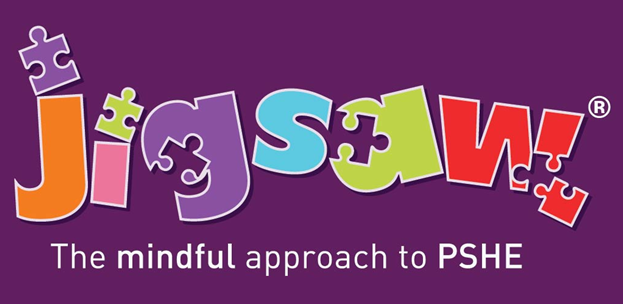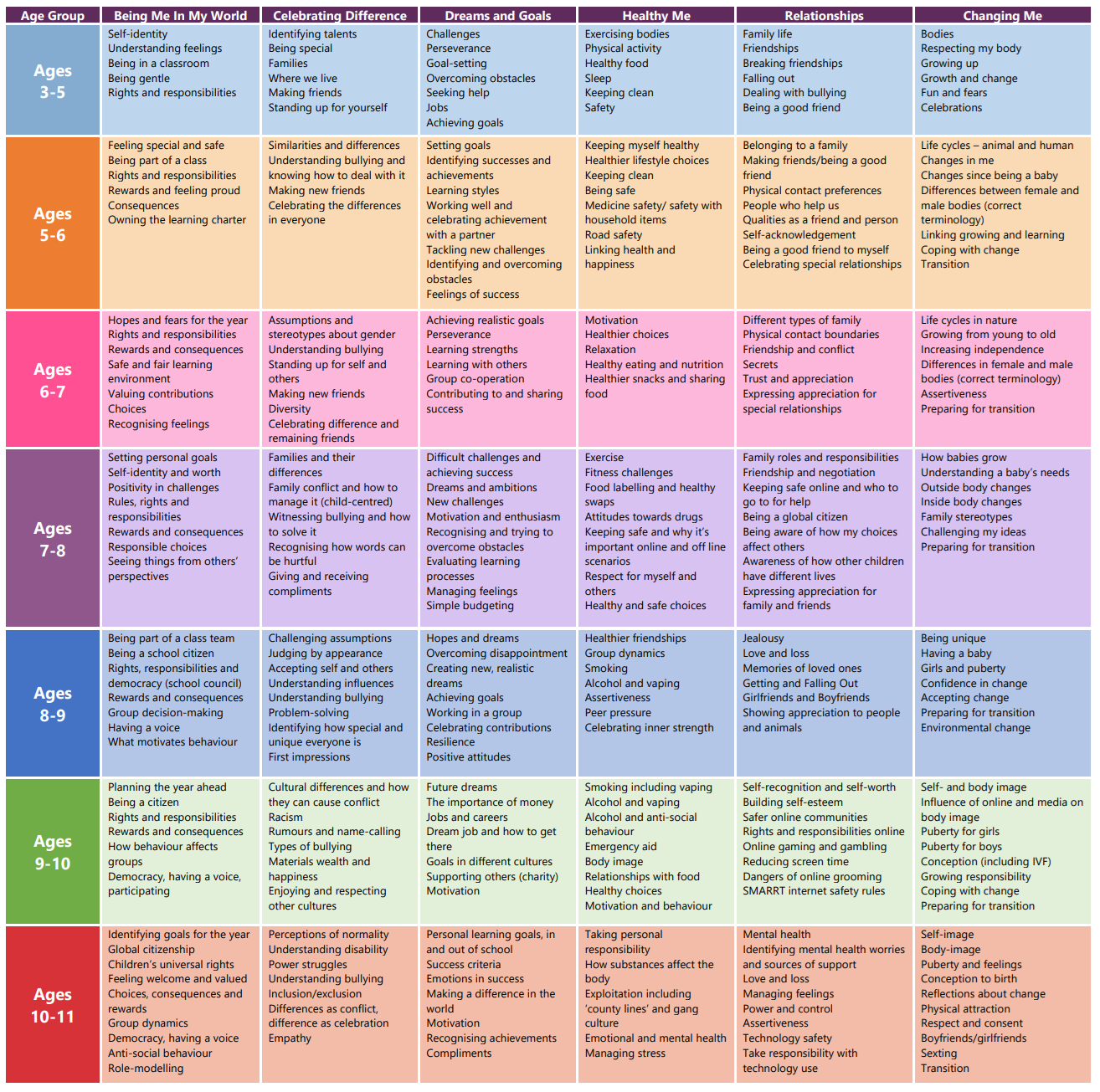PSHE (including RSE)
At Dosthill Primary Academy we aim to support all pupils to develop the knowledge, skills and understanding they need to help them manage life and learning effectively, now and in the future.
What is PSHE (Personal, Social, Health and Economic education)?
PSHE education is a planned programme of learning through which children and young people acquire the knowledge, understanding and skills they need to manage their lives, now and in the future. As part of a whole-school approach, PSHE education develops the qualities and attributes pupils need to thrive as individuals, family members and members of society.
What do schools have to teach in PSHE Education?
Every school needs to have a broad and balanced curriculum that promotes the spiritual, moral, cultural, mental and physical development of pupils, prepares them for the opportunities, responsibilities and experiences of later life’ and promotes British values.
What is Jigsaw PSHE?
We have chosen to use the Jigsaw PSHE scheme to deliver PSHE lessons across the school because it is a comprehensive Scheme of Work for the whole school. It brings together PSHE education, emotional literacy, mindfulness, social skills, Relationships and Health Education and spiritual development in a comprehensive scheme of learning. Jigsaw’s philosophy of inclusion and valuing all children links perfectly with our own values and approaches at Dosthill Primary Academy.

Jigsaw PSHE is designed as a whole school approach, with all year groups working on the same theme ('Puzzle') at the same time. This enables each 'Puzzle' (unit) to start with an introductory assembly, generating a whole school focus for adults and children alike. All the 'Pieces' (lessons) of learning are brought together to form a cohesive picture, helping children to know and value who they are and understand how they relate to other people in the world. Throughout the scheme, children are encouraged to reflect their learning in PSHE in their own behaviour and attitudes.
This approach aligns with our Discovery Curriculum, where key threads such as Respect, Self-Regulation and Empathy play a crucial role. Through PHSE and RSE, pupils are encouraged to embrace Diversity and Inclusion alongside developing positive values to empower them to have safe and fulfilling relationships and to become independent, responsible members of society.
Promoting British Values and SMSC
Jigsaw contributes to the British Values agenda significantly, both through the direct teaching of information and through the experiential learning children enjoy. The 5 strands of the British Values agenda have been mapped across every 'Puzzle' (unit) and every 'Puzzle Piece' (lesson). SMSC (Spiritual, Moral, Social and Cultural) development opportunities are mapped throughout the scheme.
We make links in our whole school assemblies to the Jigsaw themes being taught and applied through the PSHE curriculum. We are proud of the way we promote emotional wellbeing for all our pupils through our Jigsaw programme, our school values and throughout our curriculum.

Relationships and Sex Education
An important part of the Jigsaw PSHE programme is delivered through the 'Relationships' and 'Changing Me' puzzle pieces, which are covered in the summer term.
There are four main aims of teaching RSE:
• To enable children to understand and respect their bodies
• To help children develop positive and healthy relationships appropriate to their age and development
• To support children to have positive self-esteem and body image
• To empower them to be safe and safeguarded
Each year group will be taught appropriate to their age and developmental stage.
Below is a summary of RSE coverage within the Jigsaw scheme for each year group:
• Foundation Stage - Growing up: how we have changed since we were babies
• Year 1 - Boys’ and girls’ bodies; naming body parts
• Year 2 - Boys’ and girls’ bodies; body parts and respecting privacy (which parts of the body are private and why this is)
• Year 3 - How babies grow and how boys’ and girls’ bodies change as they grow older
• Year 4 - Internal and external reproductive body parts, body changes in girls and menstruation
• Year 5 - Puberty for boys and girls, and conception
• Year 6 - Puberty for boys and girls and understanding conception to birth of a baby
Right to withdraw your child
You cannot withdraw your child from Relationships Education because it is important that all children receive this content, covering topics such as friendships and how to stay safe. Your child’s primary school can choose to teach Sex Education. If you’d like to know more about this, we recommend speaking to the school to understand what will be taught and when. If you do not want your child to take part in some or all of the lessons on Sex Education, you can ask that they are withdrawn. At primary level, the head teacher must grant this request. The science curriculum in all maintained schools also includes content on human development, including reproduction, which there is no right to withdraw from.
